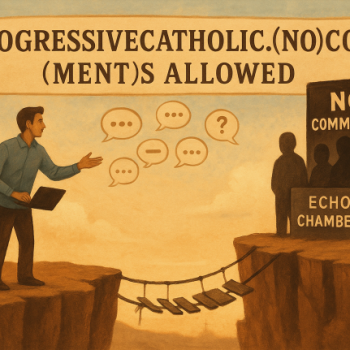TGF ODDS AND ENDS: NEW REVIEWS, NEW NEWS
It’s been a hectic couple of weeks and I’ve missed posting a few very kind notices from papers hither and yon recently.
Angela Pancella wrote a nice short review of the book for Cincinnati’s CityBeat that ran June 7 and a longer interview Angela did with me should be posted any day on Steve Beard’s Jesusy pop culture site, Thunderstruck.
Here’s Angela’s review:
All Lit Up
CATHLEEN FALSANI — THE GOD FACTOR: INSIDE THE SPIRITUAL LIVES OF PUBLIC PEOPLE (FARRAR, STRAUS AND GIROUX)Does God exist, and if so what’s He like? What can we learn from the world’s religious traditions? What can atheism or agnosticism teach us? And what would John Mahoney do? These are all profound questions (really!). Chicago Sun-Times religion writer Cathleen Falsani has been posing big questions to big names — the Rev. Al Sharpton, Anne Rice, Elie Wiesel — and has collected her conversations in The God Factor, a book filled with insights profound, silly or both. Radio host Mancow Muller tells her Jesus would enjoy a dirty joke: “He hung out with fishermen. You ever hung out with sailors? Do they have dirty mouths?” Attorney Barry Scheck explains how good people do bad things: “I see people all the time who, by any definition, describe themselves as good … and almost because of their self-righteous belief that anything they do is good, they do evil.” Falsani shows no partiality; she neither judges nor condemns. She probes at labels her subjects give themselves like “Muslim” or “Secular humanist” (or, in one memorable case, “Buddhalupist”) to discover hidden layers of experience. Such charitable, deep questioning is rare in a celebrity-addled culture. Many of the people in this book, in becoming celebrities, have become stereotypes, one-dimensional characters we think we know — Hugh Hefner the Playboy, David Lynch the Scary Director, Melissa Etheridge the Lesbian Singer. In The God Factor, they are allowed to be human beings again. And living life as a human being — isn’t that what those big questions are about? (Angela Pancella) Grade: A
In the May 27 edition of The Wichita (Kansas) Eagle, columnist Tom Schafer wrote a thoughful piece spurred by The God Factor that has subsequently been picked up by a number of other papers across the country. Thank you, Tom!
Here’s what Tom had to say, with his call for responses at the bottom.
What do you believe and why do you believe it?
What do you believe? I used to think it was a fairly easy question to answer: I believe in God and the importance of strong families and a just society.
At least that would be my broad, short-hand answer.
But if I peeled back the layers of each of those general beliefs, what would I find? Are they the same today as they were 20 years ago, or have they changed because of personal circumstances and world events?
After all, our beliefs are affected in dramatic and subtle ways. The death of a loved one, a crisis in a relationship and a loss of meaning in our lives force us to re-evaluate who we are and what we believe.
And there are other elements pulling at the roots of our beliefs — the always-intrusive media, popular culture that can promote values different from ours, and our own inner desire to rebel, even slightly so, against what others expect of us.
So, what do I believe? And have my beliefs changed?
I raise these questions because of Cathleen Falsani’s book “The God Factor” (Sarah Crichton Books, $24). The Chicago Sun-Times reporter interviewed more than 30 celebrities and other public figures about their beliefs.
Falsani talked with a range of personalities — Playboy founder and publisher Hugh Hefner, forensic scientist Henry Lee, rock stars Bono and Billy Corgan, and attorney Barry Scheck. Here’s a sampling of what a few of these well-known people had to say:
Melissa Etheridge, a rock star raised a Methodist in Leavenworth, Kan., called herself someone who is “spiritually excited” but not limited by dogma or creed.
“That’s where I am right now, realizing that it’s infinite, it keeps unfolding.”
Michael Gerson, speech writer and policy adviser to President Bush, calls himself “a mere Christian.” Raised an Orthodox Presbyterian but now an Episcopalian, Gerson links his faith to public policy.
“When you’re a person of faith who enters public life, your goal is to seek the welfare of the society you serve.”
Elie Wiesel, Holocaust survivor and Nobel Peace Prize winner, admits that for him “doubt is there all the time.”
So, why believe?
“If I were not who I am, of course I would not. But I am who I am. I cannot not believe.”
Clearly, there’s no single answer to a question about personal beliefs, as the book’s varied and sometimes bizarre responses show. But all those who responded seemed to be honest about their struggles and their search for meaning and purpose.
I mentioned the book in an earlier column and wondered how non-celebrities might respond — folks like you and me.
Have you ever written down, honestly and succinctly, what your basic beliefs are? If not, I urge you to do it. And consider sharing your thoughts with others by responding to the following questions:
• What are my key beliefs about spirituality or faith, or about what’s important in life?
• Have my beliefs changed in recent years? If so, how and why have they?
I’ll pass along several of the responses for others to ponder. Be sure to include the city or town you’re from.
Send your comments by e-mail to [email protected] or by mail to:
Tom Schaefer
c/o The Wichita Eagle
P.O. Box 820
Wichita, KS 67201By reviewing your beliefs and reading what others have to say, you can reaffirm why your beliefs matter and how they are still shaping your life.
Reach Tom Schaefer at (316) 268-6586 or by e-mail at [email protected].
PODCASTING THE GOD GIRL:
If you’re a fan of podcasts, Cathleen recently recorded a 1/2-hour program for “Point of Inquiry,” which you can find HERE online. Air times TK.
Stay tuned, as there’s much more on the way …















